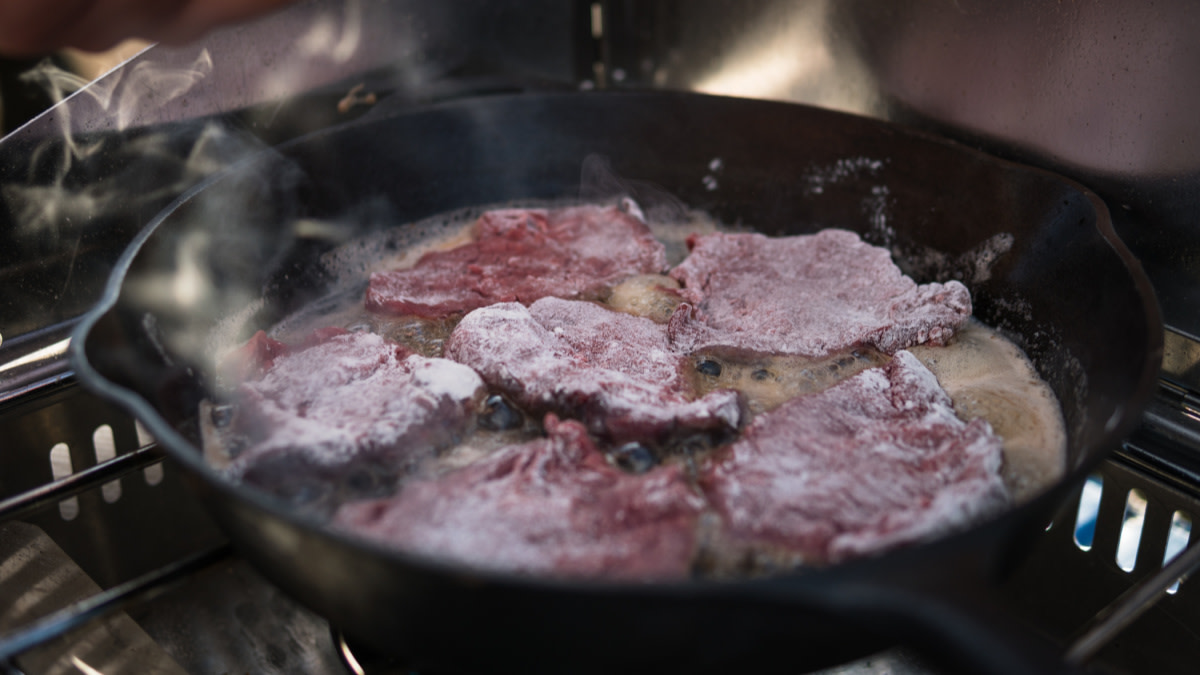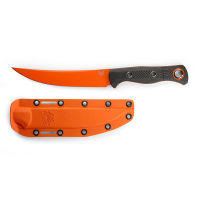
My wife and I rarely buy meat from the grocery story, instead opting for the variety of game meat and fish stored in our freezer. When we have people over for dinner, we might cook quail, deer, duck, goose, pheasant, some of the fish we’ve recently caught, or any number of wild things most Americans aren’t accustomed to eating. In my mind, our chest freezer is a literal treasure chest and I’m always excited to prepare wild game for uninitiated palates.
Then a tired scenario plays out: we sit down to eat, everyone tucks in, inevitably someone uses the word “gamey,” and I inwardly cringe.
I hate the word for a variety of reasons. One is that it assumes all game tastes the same. I’ve heard it applied to antelope and wild turkey during the same meal. Most folks can agree that besides being meat, these two proteins have nothing in common. In fact, animals of the same species from different habitats often taste completely different. A whitetail deer from Iowa doesn’t taste like a whitetail deer from Montana.
It’s what wine enthusiasts call “terroir,” or the characteristic taste and flavor imparted to a wine by its environment. There are so many variables, including age, diet, physical activity, time of year, stress, and how the animal was handled during processing that affect taste. This nuance in flavor enriches the experience of eating what you hunt and is something to be discussed and celebrated, not paved over with a word like gamey. So why has everyone, from children to food critics, come to use the word without thinking about its implications?
Another reason I despise the word is that it inherently implies that game meat, in its basic form, tastes bad. I’ve never heard the word used in a positive light. Gamey has become a pejorative term that suggests game meat requires elaborate preparations, powerful marinades, and overpowering sauces to make it palatable.
I would argue the opposite is true. One of my favorite ways to eat venison is by making tartare, a raw preparation originating in northern Europe and popularized in French cuisine. Lightly seasoned and served raw, you can taste venison in its purest form.
Humans have been eating wild animals far longer than domesticated ones. I’m sure Neolithic humans would scratch their heads at our concept of gaminess. So where did the term come from?
One theory suggests the word originally referred to meat that had slightly spoiled. At the beginning of the 19th century, market hunters, particularly bison hunters, shot animals en mass. Often, market hunters shot so many animals (the commercial take in the mid-1800s is estimated at 2,000-100,000 bison per day) it was impossible to butcher them in time to preserve their meat (if commercial hunters bothered with the meat at all). In the heat of summer, a single bison would have been a chore, even for a group of seasoned professionals.
As you can imagine, by the time people got around to eating it, the meat would have started to decompose and spoil, giving it a pungent smell and slightly rancid taste. Yet, these off-putting characteristics were from poor processing, not from the animals themselves. From its origin, “gamey” has described a state of decay, not the inherent quality of the meat.
Fast forward to today and gamey has become a blanket term for a variety of smells and flavors. I would argue when most people say something tastes gamey that what they are trying to say (although they are usually unaware of it) is that it tastes unfamiliar. Even people who have ordered venison or duck from a restaurant menu haven’t tasted the wild equivalent of what arrived on their plate. Enacted in 1900, the Lacey Act stopped hunters from selling game meat to curtail rampant market hunting and stabilize plummeting game numbers across the country. Now, if a restaurant wants to purchase game meat, it has to do so from a game farm.
In a modern sense, the word gamey strips away the subtleties of individual animals and juxtaposes two categories of animals: those raised inside fences and those roaming outside. According to this flawed thinking, if an animal comes from inside a fence, it tastes like pork, chicken, or beef. If it comes from outside a fence, it tastes gamey, regardless of if it flies or walks, what it eats, or where it lives.
People use the word gamey because it’s a word our non-wild game eating culture tells us to use. We accept it because of mental laziness. Something might taste unfamiliar, have a unique texture, or taste leaner or richer than we’re used to, so we call it gamey. The word is so opaque and broad it has virtually no meaning.
If you applied the same blanket classification to domesticated animals, the absurdity really begins to set in. Does all domesticated meat share a common characteristic? I’ve never heard anyone at a restaurant say, “boy, this pork tastes domesticated!”
When you give it just a bit of thought you realize the word gamey creates a false dichotomy that does a large disservice to the animals we love to hunt. Why not treat each animal and the meat they provide us with the respectful nuance it deserves?
This is why I wince when I roast a mallard breast or grill a whitetail loin and a dinner partner tells me it’s not as gamey as they expected it would be. You can’t judge how good something is by how much it doesn’t taste like itself. It’s akin to saying, “Gee-whiz, you sure did a good job removing all the flavor from this,” or “I can’t believe how much you got this deer to taste like feed-lot beef!”
Bringing up how un-gamey something is or telling me your grandma’s secret recipe for venison (the one with a strong marinade where she roasts it on a board and then throws the meat away and serves the board) is a fast way to get on my “never invite to dinner again” list.
So, I’m suggesting we, the hunting community, expel the word from our vocabulary. Challenge someone the next time you hear it and ask them exactly what they mean. If gamey means it tastes spoiled or “off,” let’s use those words and disassociate game from gamey. If someone tells you they had to toss out some meat because it was “just too gamey,” tell them, “no, you threw it away because you did a half-assed job handling it.”
Together we can banish the word from popular vernacular and allow people to enjoy game meat on its own terms and for what it is—delicious.







